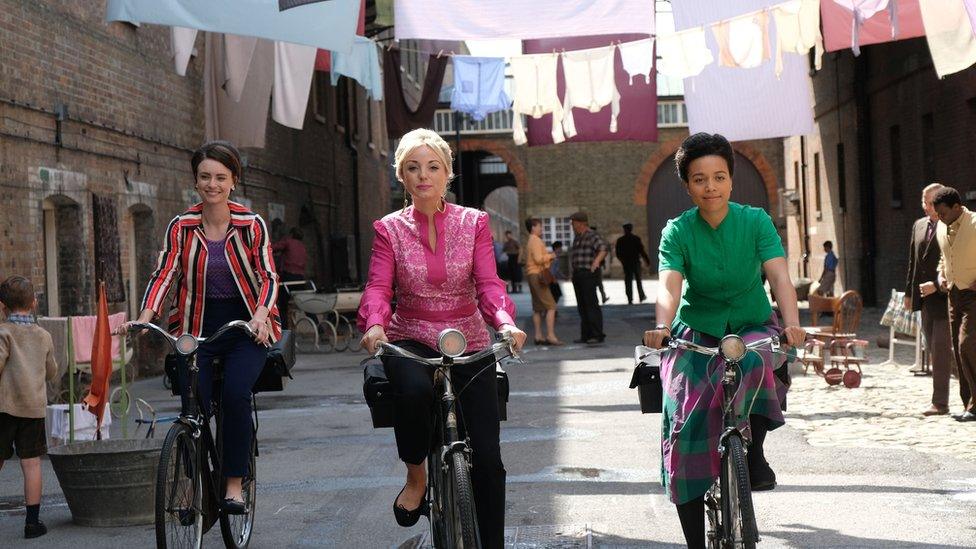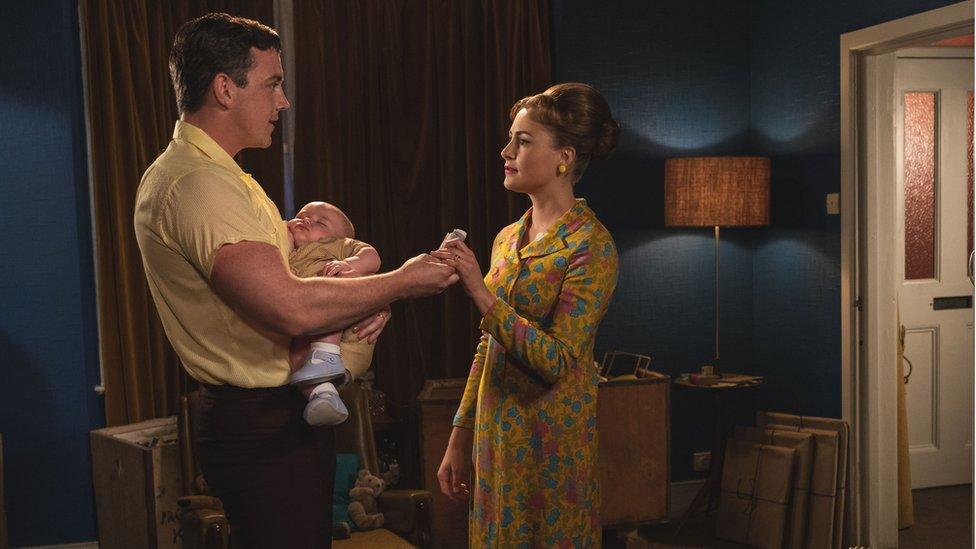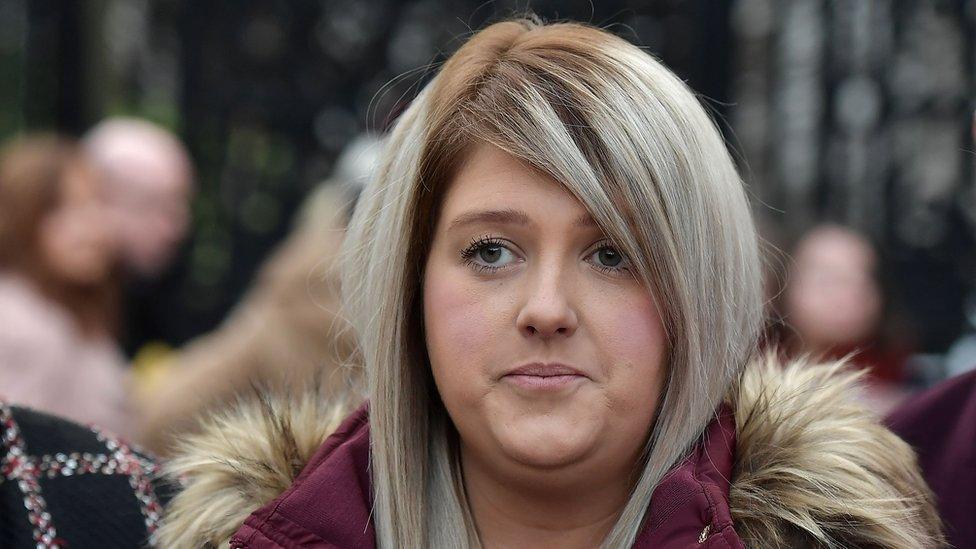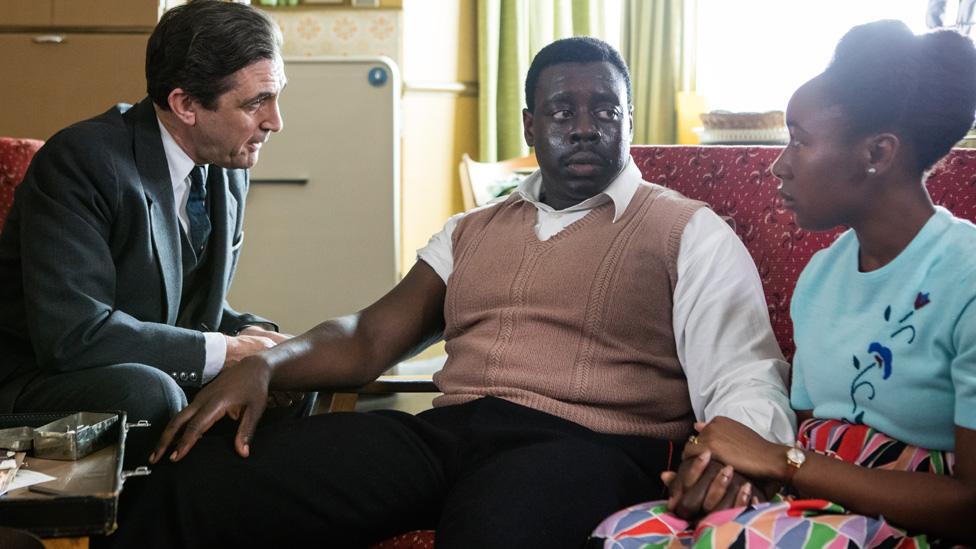Call the Midwife: BBC in abortion advice row
- Published

Call the Midwife has won praise for tackling sensitive issues
The BBC has been criticised for not linking directly to information on abortion after the issue was dealt with in an episode of Call the Midwife.
Doctors, midwives and pro-choice charities highlighted the issue after the BBC's Action Line website was advertised after the programme aired.
Excluding abortion was "stigmatising", they said.
The BBC said while it does not link to campaign groups there was no reason not to link to abortion advice.
A spokesperson said: "Abortion is a controversial subject across the UK, but there's no reason why the BBC cannot link to advice sites which provide information on it."
It said some groups may not be selected for Action Line links because they are "campaigning organisations".
The episode of Call the Midwife, broadcast on 3 February, featured Jeannie, who found herself unexpectedly pregnant with her third child.
Refused a legal termination, she paid an illegal provider and died from an infection.
After the episode, viewers were directed to the BBC's Action Line if they had been affected by the issues raised.

In the episode, Jeannie Tennant did not want a third child
A joint letter, external from the Royal College of Midwives, the Royal College of Obstetricians and Gynaecologists, Marie Stopes UK, the sexual health advice service Brook and the British Pregnancy Advisory Service (BPAS) praised the programme for having "repeatedly handled this issue sensitively and courageously".
But they said that people visiting the Action Line website found that abortion was not explicitly mentioned.
Instead, there was a link to information about pregnancy on the NHS website - which features abortion information elsewhere.
The healthcare organisations called on the BBC to include links to evidence-based information about terminations.
Katherine O'Brien, head of policy and research at BPAS, said it was "highly stigmatising to the women we care for and to the doctors and midwives who provide them with care" to treat abortion differently from other medical procedures."
She said it was "inadequate" to expect women to search the NHS website after being directed to Action Line at the end of the programme.
The 1967 Abortion Act, external established legal abortion in most of the UK, but in Northern Ireland terminations are only permitted when a woman's life is at risk or if there is a risk of permanent and serious damage to her mental or physical health.
John Deighan, deputy CEO of the Society for the Protection of the Unborn Child, an anti-abortion group, said the Action Line site was right not to include links on abortion.
He said: "The issues raised in the 'Call the Midwife' programme are controversial. I can understand reservations over which helpline numbers would have been appropriate to provide."
Call the Midwife has previously won plaudits for tackling issues such as female genital mutilation, cleft lips and palates, and sickle cell disease.
- Published30 January 2019

- Published21 January 2019
